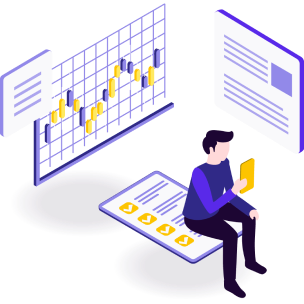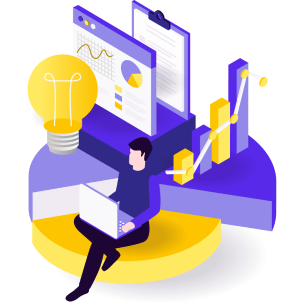Choosing the right broker is one of the most underestimated things in trading.
The choice of broker has a significant impact on your profit.
AYA Markets - Where Every Trade Transforms into Opportunity!
If you're looking for a good broker to kickstart your trading career, Aya Markets is ideal. Here, you have access to over 230 markets and one of the most advanced trading platforms available today, cTrader. Additionally, you benefit from numerous deposit and withdrawal options, including cryptocurrencies. Simply open a demo account and give it a try. Our international support team is always available to assist with any questions you may have.
Trade Smarter, Trade Faster with cTrader - Your Gateway to Next-Level Trading!
Discover the future of trading with cTrader. A sleek platform offering advanced charting, real-time data, and automated trading tools. Trade confidently on Forex and CFD markets with a user-friendly interface. Anytime, anywhere – cTrader is your key to smarter trading. Elevate your experience today!
Aya Markets - Where Every Trade Transforms into a Golden Opportunity!
Unlock golden opportunities with Aya Markets! Experience tight gold spreads at our broker, giving you a competitive edge in the precious metals market. Trade with confidence as you take advantage of our low spreads, ensuring cost-effective and efficient gold trading. Join Aya Markets today and elevate your trading experience with premium conditions and unbeatable gold spreads. Your journey to successful gold trading starts here!
About Trading Deals
Trading Deals is generally speaking a broker comparison platform.
You will find there a large and growing selection of first-class, experienced and trustworthy brokers that meet required testing and quality criteria.
That means: You can compare different brokers of high quality with each other at Trading Deals. You can find all the essential details on the Trading Deals website, so you don't have to search on different broker sites anymore.
How you can save real money with Trading Deals
In addition to the fact that Trading Deals offers you a selection of quality brokers, you can also save money.
Trading Deals has a deal for its customers with almost every broker. So if you open a broker account through the Trading Deals website or you link an already existing broker account with Trading Deals, you can take advantage of the respective deal. As a rule, these are cashback deals, which means that you will be partially reimbursed for the spread an/or commission costs that you incur when trading.
In the end, you can significantly reduce your trading costs, what has an direct positive impact to your profits.
To check which deal is available for which broker please visit www.trading-deals.com.
How to become a member
of Trading Deals
It's pretty simple: Go to the website www.trading-deals.com and register with an email address of your choice.
Note: After registering, you will be sent an email where you need to click a verification link. Only after that the registration is completed.
After that you can choose your preferred broker in the Trading Deals member area and open a new account or link an existing account.
After everything is done and the link between your account and Trading Deals is established, you can start trading and get even more performance with the advantages of Trading Deals.
Trading Deals is an absolutely free service for its customers.
Why can I recommend Trading Deals to the best of my knowledge? Well. The founder and CEO is a former student of mine. I have known him for many years. He is a lawyer and has the best knowledge and experience to make the best deals with the best brokers.
What you should know about Brokers:
There are many brokers out there and new ones are being added all the time. You will probably think that it does not make any difference which broker you choose for you trading. Just all brokers offer the same, right?
No! Please stop thinking this way!
Thinking like this is a fatal and expensive mistake, which in the worst case can cost you your entire deposit!
The broker is a very important part of success in trading. Why? We will explain it now:

1. Reliability
Anyone who entrusts money to a broker should have previously dealt with whether the respective broker is a serious trading partner at all, or whether, in the worst case, it is a scam that has only one purpose: to pull the money out of the pockets of potential customers. These black sheep among brokers do exist, and anyone who blindly trusts a reputable-looking website will quickly have lost all their money. Fortunately, we have such cases among our clients and followers only very rarely – but they still exist because people do not inform themselves beforehand.
2. Business experience of the broker
From a trusted and reputable broker that has been in business for, say, 20 years, one can easily expect professional customer and support processes. Moreover, it can be assumed that there should not be any technical glitches or the like here under normal circumstances. However, if you choose a broker that has only been around for a year, there is a greater risk that all of these things may not be working quite as smoothly yet.
This does not immediately mean that newer brokers are worse, it just means that a lot of experience and a longer business history are indications of continuity, security and professionalism. A junk broker would certainly not survive 20 years in business, because the competition is too big for that.

3. Trading costs (spreads, commissions)
Trading costs are a crucial factor for success, because they directly affect the profit or loss on the account. There are two main things that are important here:
First and foremost is the security and trustworthiness of a broker. The tightest spread is of no use in the end if you trade with a junk broker who pulls money out of people’s pockets with dubious practices.
The second factor is the actual cost. So when we talk about reputable brokers, this is where it is important to compare. Here, you should also pay attention to certain things:
Firstly, you need to think about what assets (forex, stocks, indices, crypto, etc.) you mainly trade. So if you trade mostly forex, you won’t have an advantage if your broker has great stock trading conditions. Look at what costs are specifically important to you. Most brokers in the forex and index CFD area are designed for the best possible conditions in the areas of forex, gold, oil and indices. So if you mainly want to trade stocks, you should look for alternatives here.
Secondly, the cost structures often differ between different account models of the same broker. Most often it is the case that there is an account model for a small account deposit. Here there are no commissions, but the spreads are slightly larger. Another account model is designed for larger accounts. Here, the spreads are usually very tight, but in return, the trades are subject to corresponding commissions. This is usually the case, but not always – again, compare and think carefully about what you personally need.
Again and again, there are traders who use completely wrong account models with brokers that are unsuitable for them. You no longer have to waste this money on unnecessary commissions and too large spreads – you just have to deal with the issue.

4. Trading Instruments
Some of the biggest misconceptions exist around the topic of trading instruments.
Basically, almost all brokers offer the classic asset classes such as forex, stock CFDs, commodities such as oil and gold, index CFDs and a selection of CFDs on cryptocurrencies.
5. Futures Trading
One myth we are often confronted with because people ask us about it is the topic of futures trading.
Many people think that you can’t make money in index trading unless you trade the real futures.
This is totally wrong! The main criterion for whether you can trade index CFDs just as well as futures is choosing the right broker. Of course, with index CFDs from a junk broker that has bad and delayed executions and wide spread, you are at a big disadvantage.
This is a very good example of why the choice of broker is so important. There are factually very, very good CFD brokers that offer top-notch index CFDs and that are basically not at a disadvantage compared to trading real futures. On the contrary, index CFDs often even have two decisive advantages.
Firstly, you can trade them with quite small accounts.
Secondly, you can choose the number of units much more individually and work with partial profit taking, while in futures trading you already need quite a lot of capital for a single contract.
Third: Futures are tradable only at a few brokers and also not worldwide. The U.S. broker Interactive Brokers is a leading, very professional broker offering futures trading, as well as its European white labels Banx, CapTrader or ADiF. However, access to these brokers is simply not possible in many countries around the world.
In summary: Index CFDs are by no means worse than futures – it all comes down to choosing the right broker.
6. Support
Make sure that the broker offers support in your language. This will make it much easier for you to contact the support in case of a problem. English is part of the standard of any reputable broker. Farsi is now also offered by more and more brokers, but not all.


